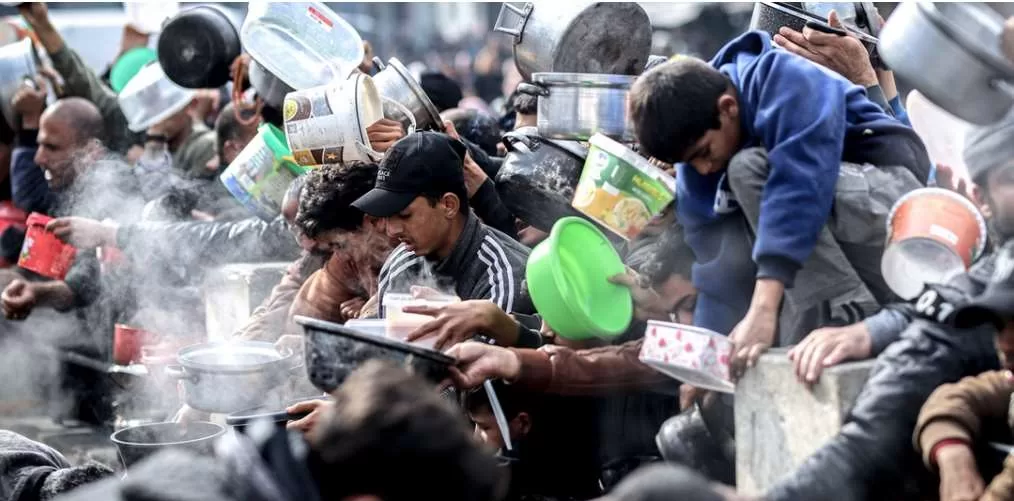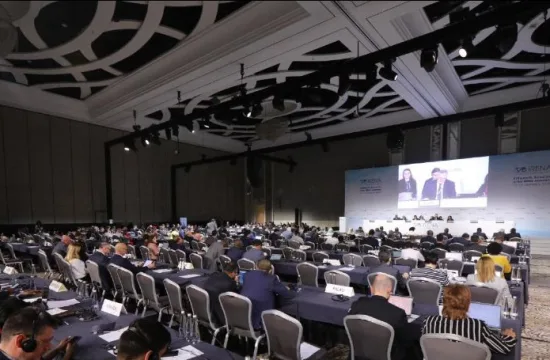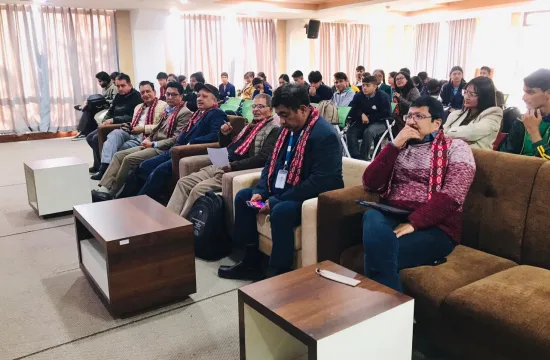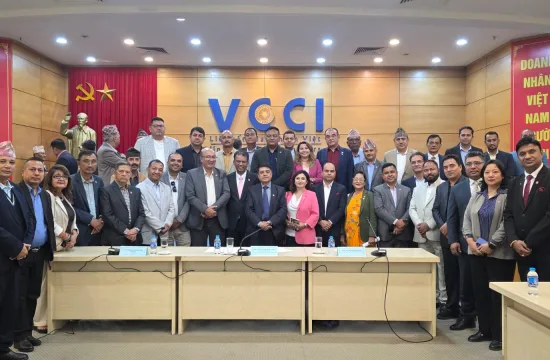
More than half a million people in Gaza are now trapped in famine conditions, according to a new analysis released by the Integrated Food Security Phase Classification (IPC).
The report confirms that Gaza Governorate has met all three critical thresholds—extreme food deprivation, acute malnutrition, and starvation-related deaths—marking the first official famine declaration in the Middle East.
The IPC projects that famine will soon spread to Deir Al Balah and Khan Younis governorates, as hunger-related deaths and acute malnutrition escalate rapidly. By the end of September, over 640,000 people are expected to face catastrophic food insecurity (IPC Phase 5), with an additional 1.14 million in emergency conditions (Phase 4) and 396,000 in crisis (Phase 3).
United Nations agencies, including FAO, UNICEF, WFP, and WHO, have issued an urgent appeal for a full-scale humanitarian response and an immediate ceasefire to allow unrestricted aid access. “Famine must be stopped at all costs,” the agencies stated, warning that intensified military operations in Gaza City could worsen the crisis, especially for vulnerable groups such as children, the elderly, and people with disabilities who may be unable to evacuate.
The IPC report highlights the devastating impact of nearly two years of conflict, repeated displacement, and severe restrictions on humanitarian access. Food consumption has plummeted, with 39% of residents reporting going days without eating. Adults are regularly skipping meals to feed their children.
Child malnutrition is accelerating at an alarming rate. In July alone, over 12,000 children were identified as acutely malnourished—a sixfold increase since January. Nearly one in four suffers from severe acute malnutrition (SAM), the deadliest form. The number of children at risk of death from malnutrition by mid-2026 has tripled to 43,400. Pregnant and breastfeeding women are also severely affected, with 55,000 expected to suffer from life-threatening malnutrition.
Infrastructure collapse has compounded the crisis. Ninety-eight percent of cropland is damaged or inaccessible, decimating local food production. Nine out of ten residents have been displaced, and aid operations remain severely disrupted. UN trucks have been looted amid growing desperation, and food prices have soared. Fuel, water, and medical supplies are critically scarce.
Gaza’s health system is on the brink of collapse. Access to clean water and sanitation has drastically declined, and multi-drug resistant infections are surging. Children are increasingly vulnerable to fatal illnesses such as diarrhea and respiratory infections.
“People in Gaza have exhausted every possible means of survival. Hunger and malnutrition are claiming lives every day, and the destruction of cropland, livestock, greenhouses, fishery and food production systems has made the situation even more dire,” said FAO Director-General QU Dongyu.
“Our priority must now be safe and sustained access for large-scale food assistance. Access to food is not a privilege—it is a basic human right.”
Famine warnings have been clear for months,” said Cindy McCain, WFP Executive Director. “What’s urgently needed now is a surge of aid, safer conditions, and proven distribution systems to reach those most in need – wherever they are. Full humanitarian access and a ceasefire now are critical to save lives.”
“Famine is now a grim reality for children in Gaza Governorate, and a looming threat in Deir al-Balah and Khan Younis,” said UNICEF Executive Director Catherine Russell.
“As we have repeatedly warned, the signs were unmistakable: children with wasted bodies, too weak to cry or eat; babies dying from hunger and preventable disease; parents arriving at clinics with nothing left to feed their children. There is no time to lose. Without an immediate ceasefire and full humanitarian access, famine will spread, and more children will die. Children on the brink of starvation need the special therapeutic feeding that UNICEF provides.”
“A ceasefire is an absolute and moral imperative now,” said WHO Director-General Dr. Tedros Adhanom Ghebreyesus.
“Gaza must be urgently supplied with food and medicines to save lives and begin the process of reversing malnutrition. Hospitals must be protected so that they can continue treating patients. Aid blockages must end, and peace must be restored so that healing can begin.”
The agencies emphasized that restoring commercial flows, reviving market systems, and rehabilitating essential services are vital to preventing further deterioration.
They called for coordinated international action to deliver food, shelter, fuel, and medical aid at scale—and to ensure that Gaza’s people are no longer forced to fight for survival.







